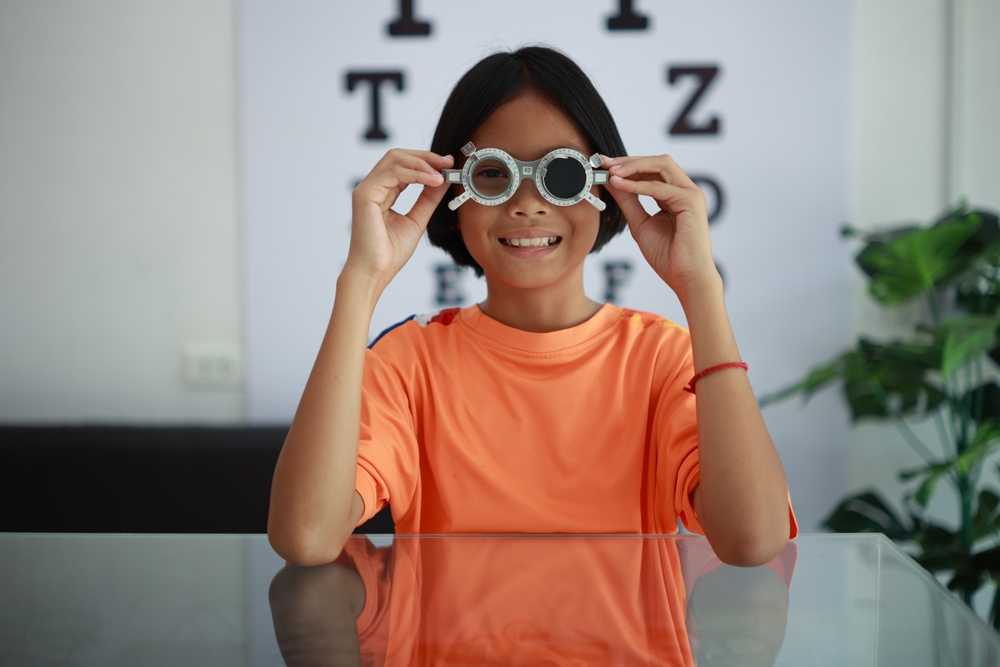
Signs Your Child May Need an Eye Exam: What Every Parent Should Watch For
As a parent, keeping an eye on your child’s overall health is a top priority. While regular doctor visits are essential, one area that can often be overlooked is eye health. Vision plays a crucial role in your child’s learning, development, and well-being, so identifying potential vision problems early can make all the difference.
Why Regular Eye Exams Matter
Many vision issues in children are easily corrected with glasses or other treatments, but early detection is key. Scheduling regular comprehensive eye exams, even if your child doesn’t exhibit any symptoms, can ensure that any potential issues are caught early before they impact your child’s development or learning. But how do you know when it’s time for your child to have an eye exam? Here are some key signs to watch for:
Frequent Squinting
Squinting can be a sign that your child is having trouble focusing on objects clearly. It often indicates issues such as nearsightedness, farsightedness, or astigmatism. If you notice your child squinting while watching TV, reading, or looking at distant objects, it’s time to schedule an eye exam.
Sitting Too Close to the TV or Holding Devices Close
If your child consistently sits very close to the television or holds books, tablets, or smartphones too close to their face, this could be a sign of vision problems. It often suggests nearsightedness, where distant objects appear blurry.
Complaints of Headaches or Eye Strain
Children may not always be able to articulate their vision problems clearly, but frequent complaints of headaches, especially after reading or doing homework, can be a strong indicator. Eye strain can result from uncorrected vision issues, which lead to overexertion of the eye muscles.
Covering One Eye or Tilting Their Head
If your child regularly covers one eye to see better or tilts their head at an angle, this could suggest an issue with one eye, such as amblyopia (lazy eye) or strabismus (crossed eyes). These conditions require early detection and treatment to prevent long-term vision loss.
Difficulty with Reading or Concentration
If your child is avoiding reading, losing their place while reading, or struggling with schoolwork, their vision could be affecting their academic performance. Children with undiagnosed vision problems may also have difficulty concentrating and staying engaged during tasks that require sustained focus.
Frequent Eye Rubbing
Occasional eye rubbing is normal, especially when a child is tired. However, frequent rubbing can indicate that their eyes are uncomfortable, possibly due to vision issues, eye strain, or even conditions like dry eye.
Poor Hand-Eye Coordination
Struggling with hand-eye coordination during activities like catching a ball or completing puzzles can sometimes indicate a vision problem. Vision plays a critical role in motor skills, so poor coordination can be a sign that your child isn’t seeing clearly.
Complaints of Double Vision or Blurred Vision
Any time your child mentions seeing double or blurred images, it’s important to take them seriously. Double vision or blurred vision could be symptoms of various vision problems, including issues with eye alignment or focusing.
When Should You Schedule an Eye Exam?
According to experts, children should have their first comprehensive eye exam around 6 months of age, followed by another exam at age 3, and again before starting school. After that, annual or biennial exams are recommended, unless your optometrist advises more frequent visits based on your child’s individual needs. At Village Family Eye Care, we specialize in pediatric eye care and are dedicated to helping your child achieve clear, healthy vision.
If you notice any signs of vision problems in your child, schedule a pediatric eye exam with Village Family Eye Care. Contact our office in Ada, Michigan, by calling (616) 271-0988 to book an appointment today.







